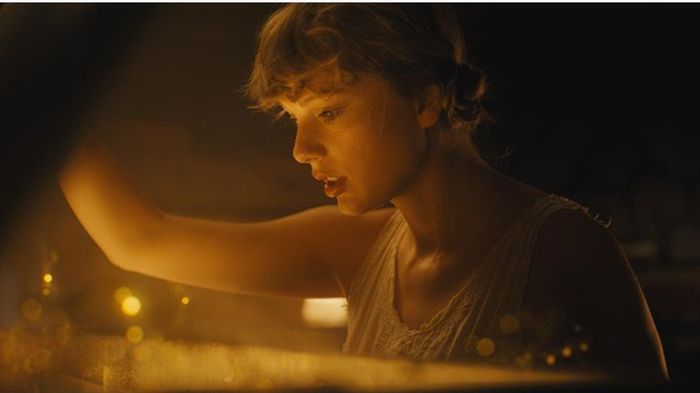Evermore: A Personal Reflection
Marina McCready offers her own take on Taylor Swift’s latest surprise album
Evermore, Taylor Swift’s latest surprise album, is a sister album to Folklore but a bit more exciting, messier and ultimately hopeful. While Folklore’s album art was all black-and-white, Evermore’s is screaming in colour; and this sets the tone for the new album.
Evermore sees Swift experiment more with genre. The solid base of indie-singer-songwriter songs is complemented by hints of her musical past- pop (in ‘gold rush’, or ‘long story short’) and country (‘no body, no crime’). She also revisits her real past, with songs like ‘coney island’ referencing former relationships. “Did I leave you hanging every single day? Were you standing in the hallway/ With a big cake, happy birthday” refers to her then-boyfriend Jake Gyllenhal missing her 21st birthday party; Swift also wrote about the same moment on Red’s ‘The Moment I Knew’. Songs like ‘long story short’ reference past disputes: ‘I fell from the pedestal/ Right down the rabbit hole’ probably refers to her conflict with Kanye West.
“Swift does not conceal the uglier aspects of her life, but, importantly, she shows that things have improved. She has softened, she has learned, she has healed.”
I can’t help but wonder whether the process of re-recording all her previous albums, necessitated by her previous record label refusing to give her the rights to her own music, caused this sudden wave of retrospection. Looking back at all her old music and singing through her former songs seems very likely to have influenced a wave of nostalgia and reflection. Swift's reflection often results in regret. In ‘happiness’, she writes “I hope she'll be your beautiful fool/ Who takes my spot next to you/ No, I didn't mean that, sorry”. I am reminded of old Swift songs like ‘Better Than Revenge’, or ‘Speak Now’, where she tended to insult and demean her ex-partners’ new lovers. She played into the idea of a jealous ex-girlfriend, often perpetuating harmful and misogynistic stereotypes. In ‘happiness’, she almost slips into those old patterns of internalised misogyny, but catches herself and apologises. The album is full of bitterness, regret, but she shows growth and maturity in her perspectives.
While Folklore was like neat little packages, tied up in a bow, Evermore seems a lot more chaotic and unhinged. Swift takes risks, she experiments more lyrically and musically. The title track, ‘evermore’, uses an unsettling bridge - a tempo shift, a thicker musical texture, and polyphonic, intertwining vocal lines (including two lines of Bon Iver’s characteristic, if quite jarring, falsetto, which seems to sing all Swift’s inner anxieties) - to convey the frantic emotion held by the lyrics (‘I’m on waves, out being tossed/ Is there a line that we just could cross’) before settling back into the slower original tempo and the simple piano motif. Then there is an instrumental moment while Swift is ‘catching her breath’, as it were, before Bon Iver and Swift sing us out, this time in harmony. The album ends with Swift giving the listener a moment of chaos, the audio equivalent of an anxiety attack, before settling back down, ending on a calming and ultimately hopeful note. Swift does not conceal the uglier aspects of her life, but, importantly, she shows that things have improved. She has softened, she has learned, she has healed.
I could not write about this album without mentioning my favourite track, ‘marjorie’. The 13th track is written about her deceased grandmother (fittingly, the 13th track of Folklore was ‘epiphany’, a track inspired by her grandfather). The track uses old recordings of Marjorie, who was a successful opera singer, as backing vocals. This song for me epitomises how Swift is followed, almost haunted by her past, but how this isn’t inherently a bad thing. She takes the past and uses it as a source of inspiration, motivation, as something to shape the future.
In summary, Evermore is an album perfect for 2020; Swift wallows in her lowest moments, dwells a bit too much on the past, yet keeps looking forward. She gives us some hope, which I think we could all use right now, that no matter what yesterday was like, tomorrow may be better.
 News / Cambridge student numbers fall amid nationwide decline14 April 2025
News / Cambridge student numbers fall amid nationwide decline14 April 2025 News / Greenwich House occupiers miss deadline to respond to University legal action15 April 2025
News / Greenwich House occupiers miss deadline to respond to University legal action15 April 2025 Lifestyle / First year, take two: returning after intermission14 April 2025
Lifestyle / First year, take two: returning after intermission14 April 2025 Comment / The Cambridge workload prioritises quantity over quality 16 April 2025
Comment / The Cambridge workload prioritises quantity over quality 16 April 2025 Sport / Cambridge celebrate clean sweep at Boat Race 202514 April 2025
Sport / Cambridge celebrate clean sweep at Boat Race 202514 April 2025





